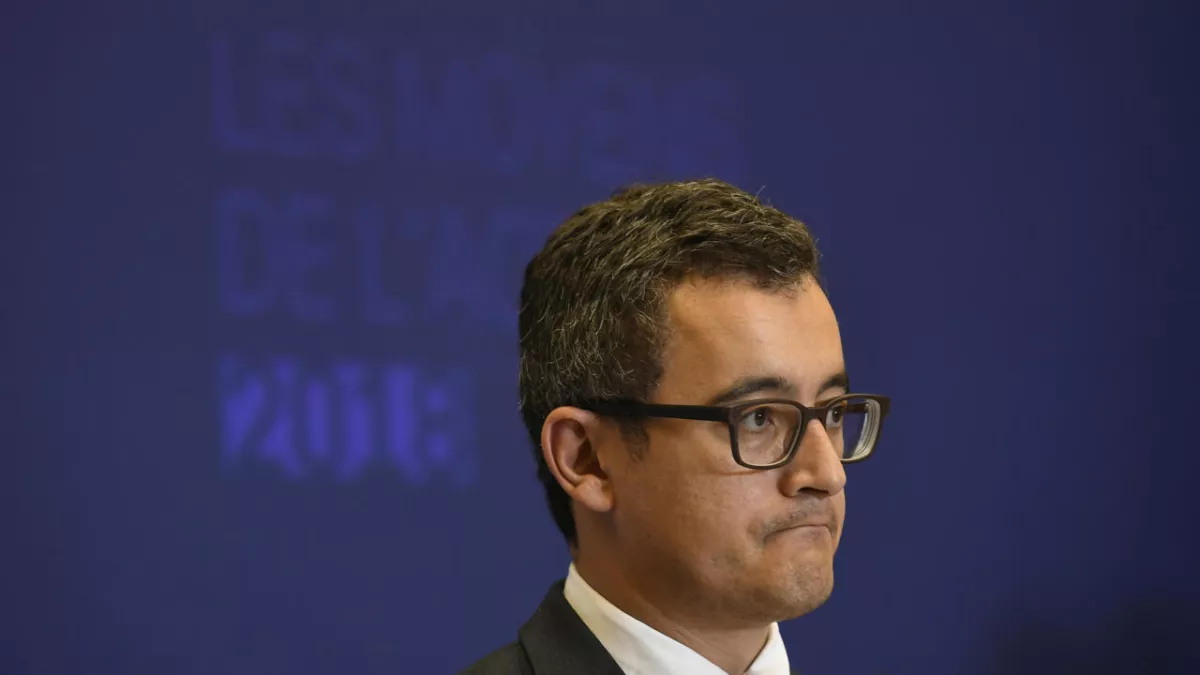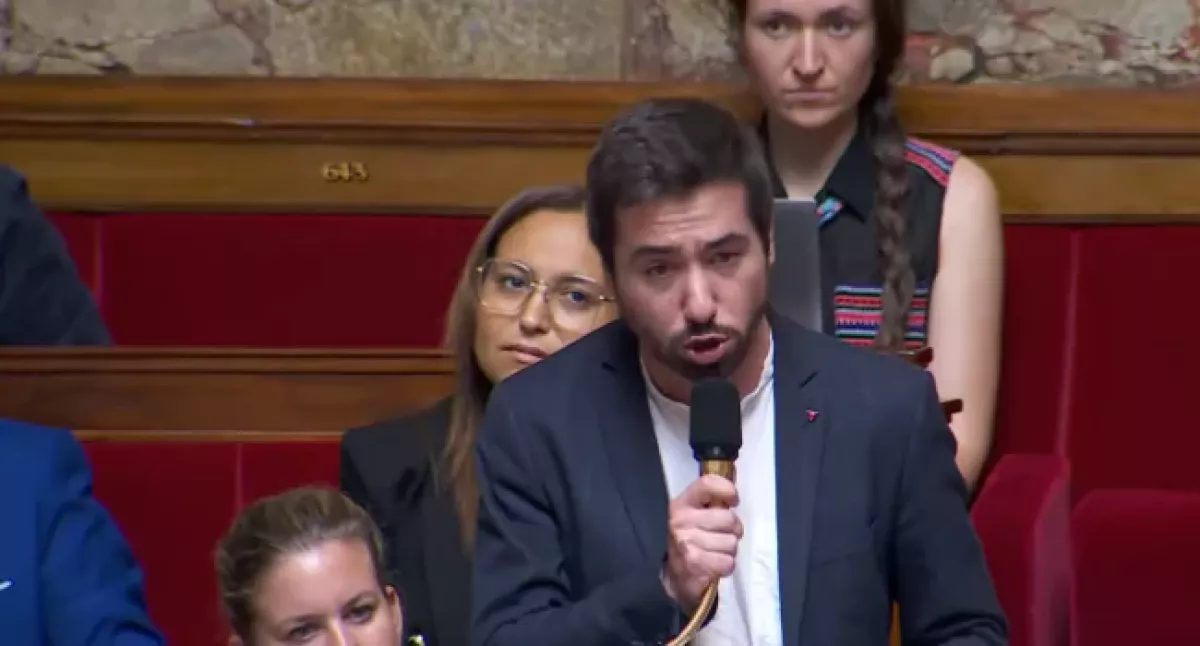Narco-chronicles of the National Assembly A day in the life of the French Parliament
French MPs are increasingly turning to alcohol and drugs, justifying it with the pressures of their job.
Members of the French Parliament systematically use alcohol and narcotics — all under a convenient pretext: “We have a tough job.” Just recently, Le Figaro published a sensational piece on rampant alcoholism and drug abuse within the National Assembly. Passing laws under the influence? Bien sûr.
Collective political energy – found at the bottom of a glass
The article’s author describes the bar atmosphere within the Palais Bourbon — the very place where lawmakers gather in the evenings: “The mood is cheerful, slightly boisterous. As is often the case, alcohol flows freely. Champagne, beer, white and red wine, whisky, gin… It’s a way for MPs, who are expected to work until midnight, to unwind and enjoy themselves before debates resume.”
One MP admitted that the more intense the parliamentary debates, the more they drink. Supposedly, this “generates collective energy,” and moments of intoxication are perceived as a form of team bonding.

Sometimes the Assembly’s buffet becomes not only a place to relax but also a stage for political actions. For example, in March of this year, the far-left members of Jean-Luc Mélenchon’s party, La France Insoumise, boycotted the communal drinks with the Minister of Justice and right-wing Republican Gérald Darmanin.
To be fair, France is a country with centuries-old winemaking traditions. Sitting down to dinner with a glass of wine is part of the culture. However, while it is considered good manners across the country to drink no more than half a glass, it seems there is a different kind of hierarchy inside the walls of Parliament.
The MPs themselves complain about the stressful work pace, tight schedules, constant social events, and meetings with journalists — and alcohol is served everywhere. One former MP admitted, “If they stopped serving alcohol at the bar, there wouldn’t be a single parliamentarian left at the evening sessions.”
Attempts to ban the sale of alcohol within the National Assembly building have been made, but all of them have failed. Moreover, drinking doesn’t only happen in the buffet — alcohol is consumed right during sessions and in the breaks between votes.
An MP on the run
Under the influence of alcohol and drugs, parliamentarians often lose their sense of moderation — and not just during debates. The most telling case was that of MP (or MP Eva) Joachim Son-Forget. He began his political career in the Socialist Party, later switched to Macron’s camp, and was elected to parliament representing one of his parties.

However, in 2022, Son-Forger unexpectedly defected to the far right, joining the party of the highly controversial Éric Zemmour. Then, in 2024, she underwent a dramatic gender transition, officially becoming a woman named Eva.
What followed was a series of scandals. In June 2024, while under the influence of cocaine, Son-Forget was speeding through Paris’s 7th arrondissement in her Mercedes. When the police tried to stop her, she made a sharp turn, crashed into a parked car, and fled the scene, escaping along bike paths.
During her arrest, authorities found 0.7 grams of cocaine on her. She was taken into custody.
Nine months later, in March 2025, Son-Forget used her still-valid parliamentary pass to enter the residential wing of the National Assembly, broke into the apartment of MP Manon Bouquin from the National Rally party, drank all the alcohol from her minibar, and… stole her dresses. She then fled, chased by security guards. Criminal charges were brought against the former MP.
Democracy on psychotropics
The scandals didn’t stop there. In January 2023, Mediapart reported that Emmanuel Pellerin, an MP from the presidential party, regularly used cocaine. He was temporarily suspended from his duties.

At the end of 2023, a truly explosive scandal broke out. Senator Joël Guerriau of the Horizons party spiked the drink of MP Sandrine Josso (from the MoDem party) with the intent of committing sexual assault. The incident occurred at his home: after just one glass of champagne, the woman began to feel unwell and narrowly managed to avoid the assault. Toxicology tests revealed the presence of ecstasy in her system. The drug was also found during a police search of Guerriau’s home.
The senator’s lawyer described the incident as an “unfortunate accident,” while Guerriau himself claimed he had received the psychoactive substance from a colleague to “cope with personal difficulties.”
What makes the case particularly striking is that this man is not just a senator — he’s a banker by profession and serves as the Vice-President of the Committee on Foreign Affairs, Defence and Armed Forces.
This wasn’t his first brush with controversy: back in 2016, he was involved in another scandal after tweeting (on what is now X) a photo of his genitals along with a message addressed to fellow senator Bruno Retailleau — who currently serves as France’s Interior Minister.
And yes, according to the Senate’s official website, Guerriau still holds his seat.
Young residents of France’s impoverished suburbs would have received real prison sentences for such actions — but in this case, we’re talking about a “respected” member of parliament.

Following the Guerriau incident, Caroline Janvier, an MP from the Renaissance party, gave a candid interview to Paris Match. She spoke openly about drug-fuelled parties and the unchecked consumption of alcohol during parliamentary dinners and evening events.
According to her, some MPs "perk themselves up" with drugs during late-night sessions. She added: “I talk to some of them. I don’t judge — I just empathise.”
Janvier also admitted that after entering Parliament, she herself began drinking several glasses a day and smoking heavily. She has since managed to quit.
In her observation, cannabis and cocaine are the most commonly used substances among MPs, but synthetic drugs are gaining popularity as well. Many of them, she noted, only start using drugs after being elected to the Assembly.
Following the interview, her fellow party members pressured her to apologise. While she did not retract her statements, she promised not to speak publicly on the subject again.
Political "chemsex"

In October 2024, 34-year-old MP Andy Kerbrat from the far-left LFI party was arrested for purchasing the synthetic drug 3-MMC — a cheap cocaine substitute often associated with "chemsex" practices. Kerbrat later announced on X that he intended to undergo treatment.

In February 2025, Grenoble’s Green party mayor Éric Piolle proposed monthly anonymous drug tests for MPs and government ministers. Piolle had previously advocated for the legalisation of marijuana.
Shortly after, France 2 journalist Élise Lucet offered MPs the chance to take a rapid drug test right inside the National Assembly. The result? Widespread outrage.

In response to growing media attention, National Assembly President Yaël Braun-Pivet declared, “The Assembly is not a theatre.” Her deputy, Naïma Moutchou, went further, accusing journalist Élise Lucet of "humiliating Parliament."
Even President Emmanuel Macron admitted during a public address, “We cannot condemn drug trafficking if we have users among us.” While drug use in France is technically punishable by fines, they are rarely enforced.
Communist MP Elsa Faucillon sounded the alarm, warning that drugs pose a threat not only to individual health but to democracy itself: “If we want to write laws with clarity and composure, it's better not to be under the influence.”
Hard to argue with that. Or perhaps... it's already too late?








